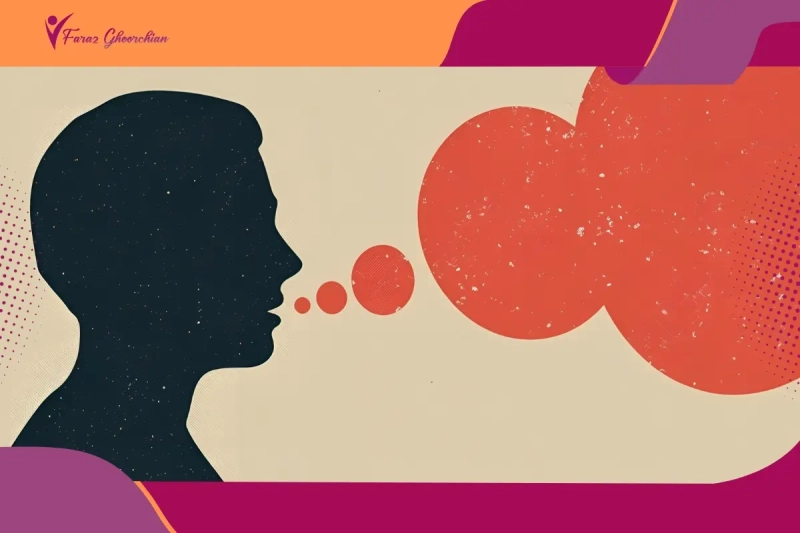Learn what does schizophrenia mean, its symptoms, causes, types, diagnosis, treatment, and prevention tips for better mental health.
- 1. Introduction: Understanding the Basics
- 2. Schizophrenia Definition in Psychology
- 3. Signs of Schizophrenia: Early Indicators
- 4. Schizophrenia in Children and Adolescents
- 5. Schizophrenia Causes: Biological, Psychological, and Environmental Factors
- 6. Types of Schizophrenia and Their Characteristics
- 7. Schizophrenia or Bipolar: Understanding the Differences
- 8. Diagnosing Schizophrenia: Methods and Age Factors
- 9. Schizophrenia Treatment: Managing Symptoms and Recovery
- 10. Schizophrenia How to Prevent and Long-Term Outlook
- 11. Conclusion
Introduction: Understanding the Basics
Trying to explain what does schizophrenia mean is a bit like trying to describe a color to someone who has never seen it. The schizophrenia meaning goes beyond the medical labels you might read online. It’s about the way a person’s mind can sometimes play tricks on them, making familiar places feel strange or conversations harder to follow. For some, it creeps in slowly over months or years. For others, it comes in a sharp and disorienting wave. Learning What is Schizophrenia isn’t just for doctors or students; it matters to families, friends, and anyone who wants to understand the reality behind the word. And the more we understand it, the easier it becomes to see the person first, and the illness second.
Schizophrenia Definition in Psychology
Ask ten psychologists for the schizophrenia definition and you might hear ten slightly different answers. In the field, the schizophrenia meaning isn’t just about ticking boxes on a checklist; it’s about how a person’s thinking, emotions, and perception of reality can shift in ways that affect everyday life. What is Schizophrenia? For some, it’s a jumble of thoughts that never seem to settle. For others, it’s the unsettling sense that the world has changed in a way no one else notices. Sometimes the changes creep in slowly, almost quietly. In therapy, certain approaches, much like What is Pragmatism, lean toward real-world problem-solving, teaching skills to navigate life while managing symptoms. It’s a definition that’s easier to understand when you’ve seen how it unfolds in real people, not just in textbooks.
Signs of Schizophrenia: Early Indicators
Spotting the first signs of schizophrenia isn’t as straightforward as some think. In a way, it can feel like watching small puzzle pieces slowly fall into place but without knowing what picture they’re making. Early schizophrenia symptoms can be subtle, and sometimes they just look like someone is stressed, tired, or going through a rough patch. The difference is that these changes tend to stick around or quietly grow stronger.
Some of the things you might notice include:
- Pulling back socially – skipping hangouts or avoiding calls without much of a reason.
- Scattered or jumpy thoughts – the kind that drift mid-sentence, and you’re not sure where they were going.
- Odd sensory moments – like hearing a voice you can’t quite place, or catching a flicker in the corner of your eye.
- Reactions that feel “off” – smiling when something sad is being discussed, or showing no reaction at all.
- Responsibilities slipping – school, work, or even everyday chores getting left undone more often.
One or two of these on their own might not mean much, but when several start showing up together, it’s worth having a professional take a closer look.
Schizophrenia in Children and Adolescents
When schizophrenia in children appears, it often takes people by surprise. Most expect the condition to show up in early adulthood, since the average schizophrenia diagnosis age is late teens to mid-twenties. But in some cases, the changes start much earlier, though they may be easy to miss at first. A child might slowly lose interest in friends, fall behind in school, or seem distracted in a way that doesn’t quite match typical behavior. Sometimes it’s brushed off as stress or a “phase,” which delays finding out the real cause.
In younger patients, the schizophrenia meaning can include hearing voices, holding unusual beliefs, or showing little emotion for long periods. These aren’t always constant, and that unpredictability can be confusing for families. Understanding What is Schizophrenia in this age group means paying attention over time, noticing small changes, and getting a professional opinion early. With the right schizophrenia treatment, children and teens have a better chance of building coping skills and staying connected to daily life.
Schizophrenia Causes: Biological, Psychological, and Environmental Factors
When people talk about schizophrenia causes, they often want one clear answer, but there isn’t one. It usually comes from a mix of different influences that build up over time. Biologically, family history matters. If a close relative has it, the chances go up, although plenty of people carry the genes and never develop the illness. Brain chemistry plays a role too. Shifts in dopamine or glutamate can affect how a person thinks or interprets reality, which ties back to the broader schizophrenia meaning.
Psychological factors can make someone more vulnerable. Things like ongoing stress, a difficult childhood, or major emotional shocks sometimes appear in the background of people later showing signs of schizophrenia. Environment matters as well, with prenatal infections, certain toxins, or even extreme malnutrition before birth increasing the risk. In some cases, patterns connected to fear, much like ideas discussed in why do we fear, seem to make symptoms worse. Knowing What is Schizophrenia in this bigger picture helps in prevention, early action, and finding the right schizophrenia treatment.
Types of Schizophrenia and Their Characteristics
When people talk about schizophrenia types, they are really just describing the different ways this condition can show up. The core idea of What is Schizophrenia stays the same, but the details can be surprisingly different from one person to the next. Some patterns are more obvious, while others are harder to spot unless you’ve spent time around them.
You might come across:
- Paranoid schizophrenia – often involves strong beliefs that aren’t based in reality or hearing voices others can’t hear. Suspicion toward people can be intense, though it isn’t the same as Paranoid Personality Disorder.
- Disorganized schizophrenia – thoughts and speech may jump around, making it hard to follow. Even small daily routines can feel complicated.
- Catatonic schizophrenia – big changes in movement, from long stillness to sudden, repetitive actions.
- Undifferentiated schizophrenia – a mix of symptoms that don’t clearly fit into one type but still disrupt life.
- Residual schizophrenia – active symptoms ease up, yet low motivation, difficulty focusing, or social withdrawal may stick around.
Schizophrenia or Bipolar: Understanding the Differences
People sometimes mix up schizophrenia or bipolar disorder, which is understandable. Both can change how someone thinks, feels, and functions day to day, but the way they do it is different. What is Schizophrenia usually involves ongoing changes in perception and thought. Hallucinations, delusions, or disorganized thinking can be part of daily life and may not disappear for long stretches.
Bipolar disorder, described further in What is Bipolar Disorder, is defined by mood episodes that shift between highs and lows. In severe cases, these mood swings can bring psychotic symptoms, but they tend to fade when the mood stabilizes. With schizophrenia, the psychotic features are more constant and not just tied to mood.
It can take time, and a careful professional evaluation, to tell the difference. Knowing whether it is schizophrenia or bipolar is important, since treatment plans, medications, and therapy approaches can vary a lot between the two.
Diagnosing Schizophrenia: Methods and Age Factors
Figuring out if someone has schizophrenia is rarely quick. It usually starts with conversations about what has been happening lately, along with a look at medical history and any changes friends or family have noticed. The signs of schizophrenia can overlap with other mental health issues, so doctors often spend time ruling those out first. Sometimes, that might mean psychological evaluations or even brain scans, though there’s no single test that can give a definite answer.
The typical schizophrenia diagnosis age is between the late teens and early thirties. Still, it can show up earlier or later. When symptoms begin before 18, it is called early-onset schizophrenia, and that can make school, friendships, and independence more complicated. Understanding What is Schizophrenia in the context of age helps professionals choose better treatment options. And the earlier it is recognized, the better the chances of keeping life as stable and manageable as possible.
Schizophrenia Treatment: Managing Symptoms and Recovery
Treating schizophrenia is rarely a straight path. For most people, schizophrenia treatment starts with medication, often antipsychotics, to ease hallucinations, quiet delusions, or help untangle confused thinking. Finding the right dose can take a while, and for some, that part is harder than expected.
Therapy plays a big role too. Cognitive behavioral therapy can help a person notice unhelpful patterns and replace them with more manageable ones. Family education gives relatives a clearer picture of What is Schizophrenia, so they know how to offer support without adding pressure. Some find group sessions helpful just for hearing, “you’re not the only one.”
Daily routines matter more than people think. Steady sleep, balanced meals, and regular movement can make the signs of schizophrenia easier to live with. And if depression comes into the mix, as explained in What is Depression, working on both at once usually helps more than tackling them separately. Recovery can be slow, but every small improvement counts.
Schizophrenia How to Prevent and Long-Term Outlook
There’s no certain way to stop schizophrenia from ever developing, but knowing a few schizophrenia how to prevent strategies can help lower the risk. One of the biggest is spotting changes early. If the signs of schizophrenia start to appear, getting professional help right away often makes treatment more effective. Avoiding drugs, keeping stress under control, and staying connected with supportive people can also make a real difference.
In terms of the long run, outcomes vary. With the right schizophrenia treatment, some people manage symptoms well enough to work, study, and keep relationships steady. For others, it’s more about finding a balance that works day to day. Understanding What is Schizophrenia and what tends to trigger it means families and patients can act faster if problems return. Progress can be slow, but small, steady improvements often add up over time.
Conclusion
Talking about what does schizophrenia mean is never just a quick definition. It’s tied to real lives, real families, and situations that can change from one month to the next. The signs of schizophrenia don’t always show up in obvious ways, and even when they do, they can be mistaken for something else. Knowing the different schizophrenia types helps, but so does understanding the person behind the symptoms. With schizophrenia treatment, progress is possible, even if it comes slowly. Some days will feel like steps forward, others not so much. That’s part of the reality. In the end, understanding What is Schizophrenia means being ready to notice changes, offer support, and remember that even small improvements can mean a lot.















